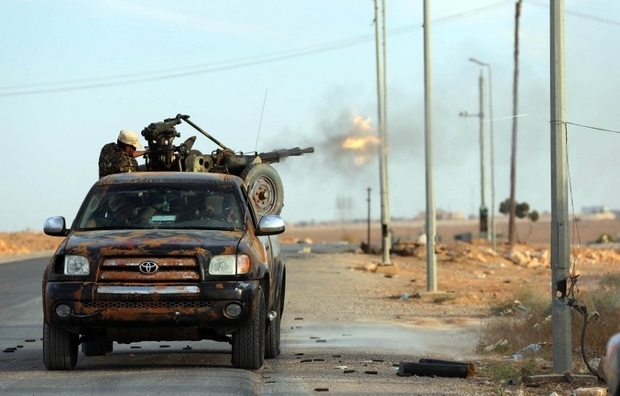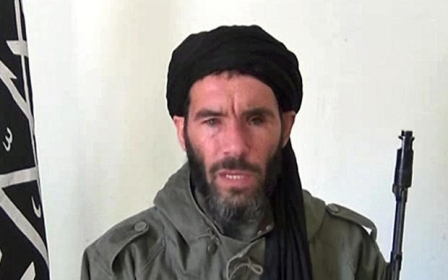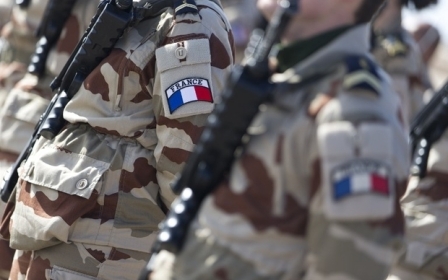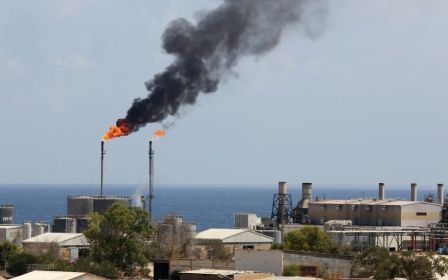Al-Qaeda suspected of abducting three westerners in Libya

Two Italians and a Canadian who were abducted last Monday may have fallen into the hands of Al-Qaeda, Libyan and Algerian security sources have told Middle East Eye.
The incident happened on Monday morning, when two Italian men, Bruno Cacace, 56, and Danilo Calonego, 68, and a Canadian man named only as “Frank”, were threatened and abducted between 7am and 8am.
“We’ve been warning all expatriates who work in south Libya for the past month of a greater risk of abduction and attack in the region,” a security source told Middle East Eye on condition of anonymity.
'We’ve been warning all expatriates who work in south Libya for the past month of a greater risk of abduction and attack in the region'
- Security source
The incident happened between the oases of Ghat and Taharat in the region of Fezzan, southwest Libya, close to the border with Algeria.
According to The Libya Observer, all three men are engineers and work for the Italian company Contratti lnternazionali Costruzioni (CON.I.COS) at Ghat airport.
The Italian Department of Foreign Affairs has confirmed the abduction of the two Italian citizens. The Canadian Department of Foreign Affairs has talked about “disturbing but not confirmed information” regarding its expatriate.
Why experts believe it's AQIM
Koumani Mohammed Saleh, head of Ghat City Council, told Associated Press that local bandits, not al-Qaeda, were behind the abduction.
But Libyan and Algerian security sources, who were contacted by MEE, said: “This region is a well-known hang-out for men from AQIM (al-Qaeda in the Islamic Maghreb), especially Mokhtar Belmokhtar’s men.”
Belmokhtar was behind a hostage crisis in 2013, when a brigade affiliated to al-Qaeda seized a number of foreign hostages at the Tigantourine gas facility near In Amenas, Algeria. At least 40 staff – many of them foreigners – and 29 attackers died during the siege.
'Even if the abduction itself was organised by bandits, they have to have some sort of link with AQIM'
- Libyan officer
Several Algerian military bases close to the border with Libya have now been put on alert.
“We’ll keep on investigating on AQIM,” said a Libyan officer. “If this abduction was really organised by local bandits who steal 4X4s and trucks, they would have already asked for a ransom and, after a couple of days, they would have released the hostages. Yet, no demand has been made since the abduction.
“This leads us to think that even if the abduction itself was organised by bandits, they have to have some sort of link with AQIM. If it’s the case, the hostages have probably already been taken to the north of Niger or Mali.”
Rome asks Algeria for help
Italian authorities have already asked Algeria for help, according to security sources from the region. An Italian security chief arrived in Algiers on Tuesday.
After the fall of Muammar Gaddafi in 2011, new alliances were formed between the southern tribes and the northern Libyan militias that replaced the Gaddafi regime. But fighting between the Tuareg and Toubou (nomadic population of Western Sahara) tribes has led to serious shortages in essentials in the southern border areas of Libya.
Algiers is trying to ease the crisis by sending humanitarian aid to Ghat and Ubari, another city in the Fezzan region.
Rome is relying on the close relationship that exists between the tribes and Algeria to find its expatriates. Algeria has allegedly contacted the Idnane tribe. “We have asked them three specific things,” a security source told MEE. “Are the hostages still in southwest Libya? Was that abduction carried out by AQIM or Islamic State (IS) elements in Libya or Mali? Is there a possibility of the hostages being released in exchange for a ransom?”
Algerian authorities have also asked the katiba of El Tenere, a Tuareg militia allied to the Libyan National Army (LNA), which is close to Libya's Eastern government in Tobruk, to carry out search operations in the mountains, the southeast region and the north of Ghat.
This article was originally published on Middle East Eye's French website and translated by Nassima Demiche.
Middle East Eye propose une couverture et une analyse indépendantes et incomparables du Moyen-Orient, de l’Afrique du Nord et d’autres régions du monde. Pour en savoir plus sur la reprise de ce contenu et les frais qui s’appliquent, veuillez remplir ce formulaire [en anglais]. Pour en savoir plus sur MEE, cliquez ici [en anglais].




